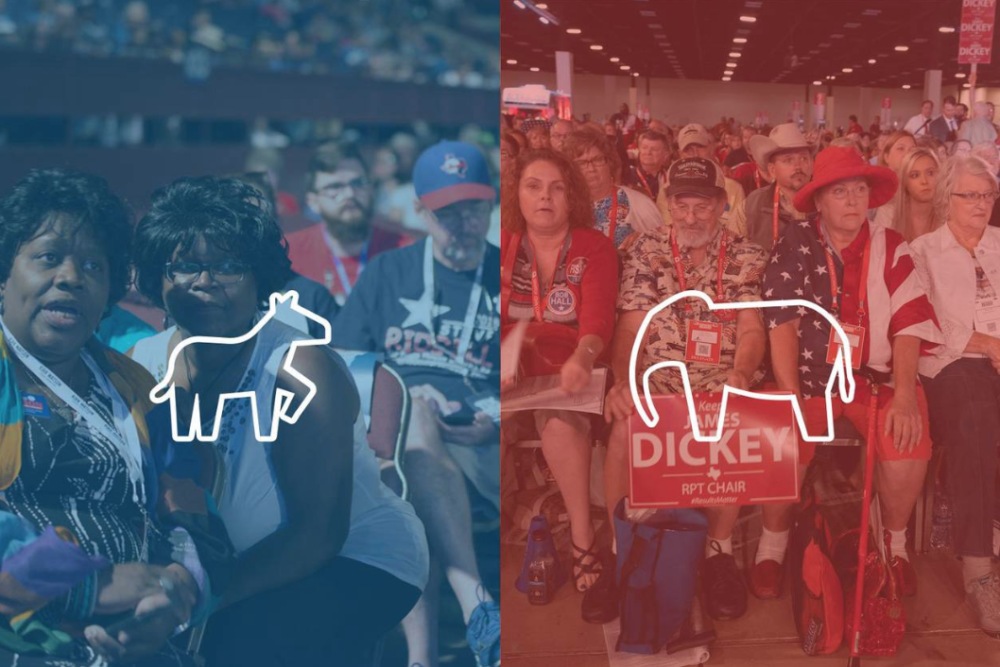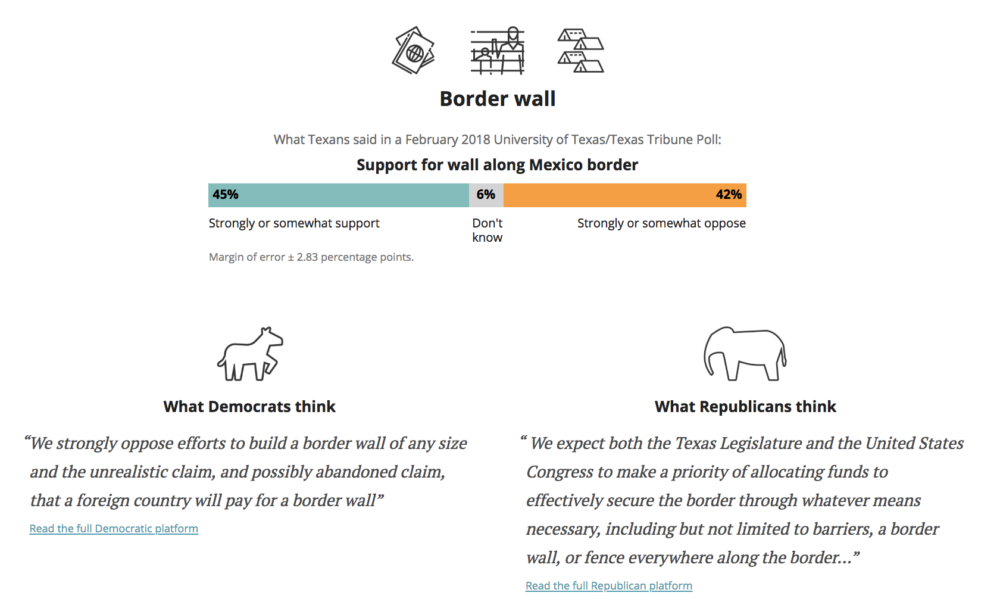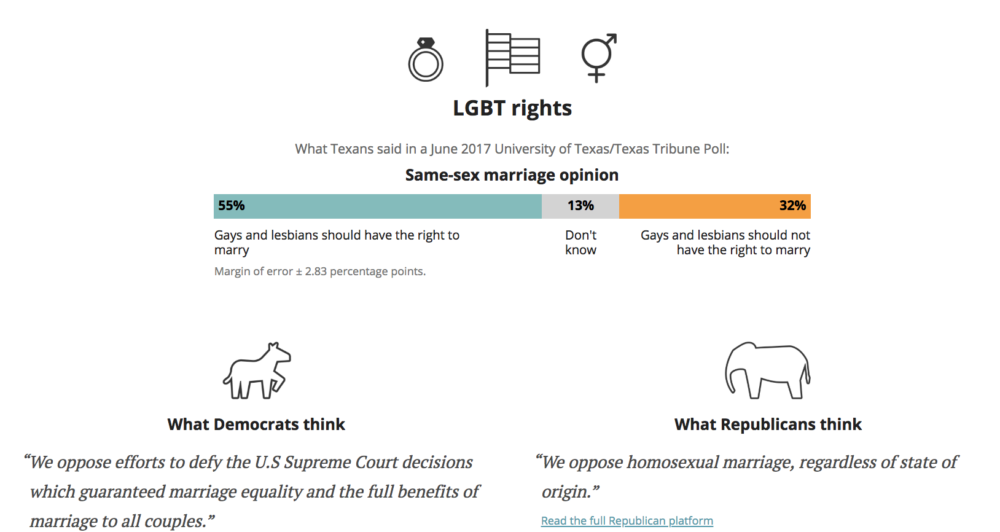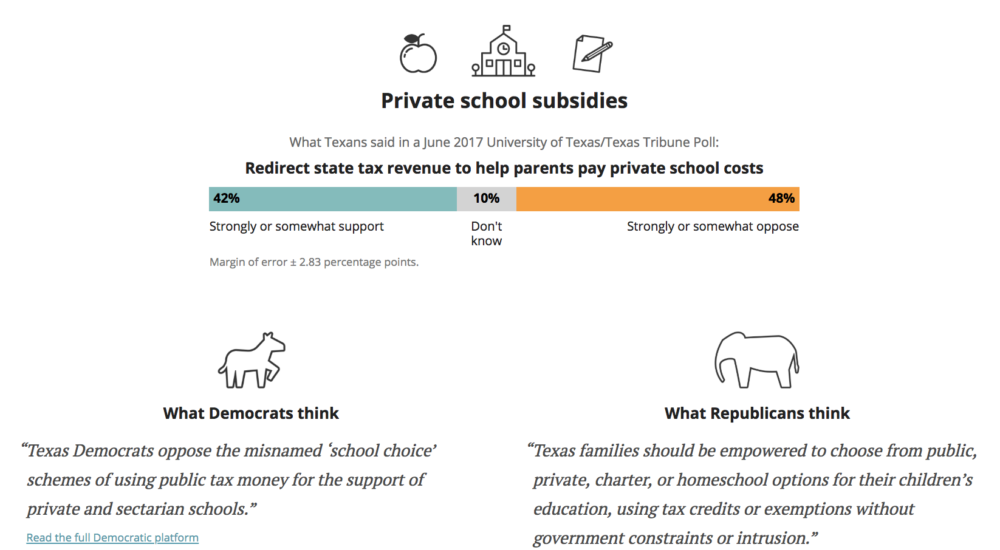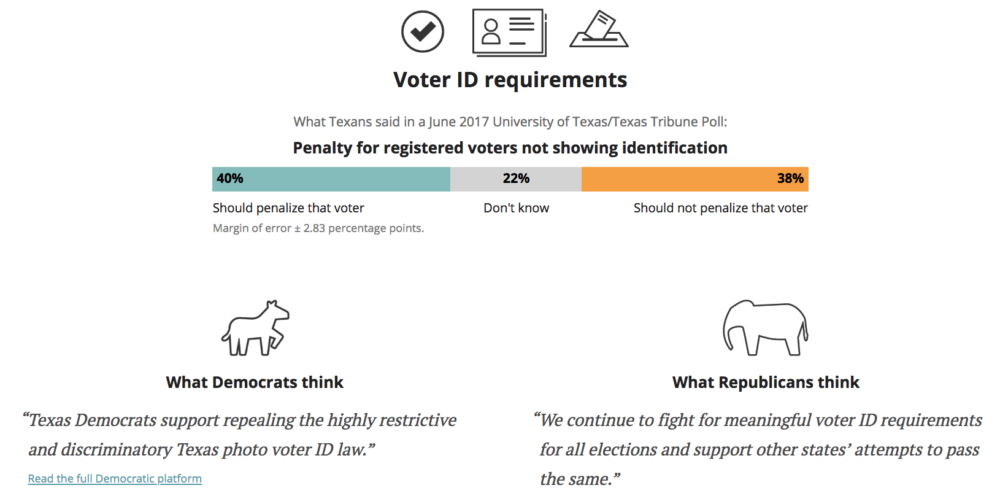Texas Republicans and Democrats recently held their respective state party conventions, where they approved the latest versions of their platforms. These documents, updated every two years, set out what each party’s base views as its core principles. Over dozens of issues, the two parties set very different agendas for the future of Texas.
Here’s a look at where the two state parties, and the state’s voters overall, stand on some high-profile issues: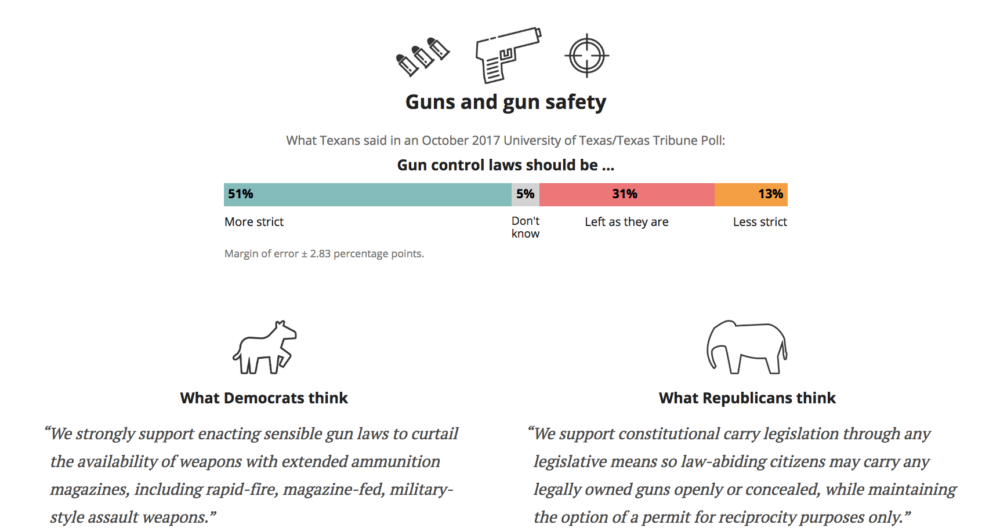
Republicans first added support for letting Texans carry a handgun without a permit — what's also known as "constitutional carry" – to their platform in 2012. Democrats have long supported strengthening and reforming current gun laws, and their 2018 platform calls for the repeal of current laws allowing for "open carry" of handguns and assault rifles.
Following this year's shooting at Santa Fe high school that left 10 dead, both parties expanded the sections of their platforms dealing with guns. The GOP platform now includes opposition to "red flag" laws, which allow for the temporary removal of firearms from someone who poses an immediate danger. The Democrats added a plank to support allowing law enforcement to confiscate firearms from suspects charged with domestic violence, stalking, human trafficking and other crimes.
Texas Republicans this year passed a plank in support of border security funding that mentioned "a border wall, or fence everywhere along the border where it is feasible and useful." This replaced an earlier plank that called for "building a high wall with a wide gate … where it is deemed effective and cost-efficient." Democrats’ denouncement of a border wall is nothing new; similar language was present in the 2016 platform.
Texas Republicans softened their language opposing homosexuality and same-sex marriage in this year's platform. Two years earlier, the platform described homosexuality as "a chosen behavior that is contrary to the fundamental unchanging truths." The GOP maintained its support for a bill regulating which restrooms transgender Texans can use.
The Democrats’ LGBTQ Rights plank is nearly identical to the 2016 one, including support for the right of transgender Texans to use facilities consistent with their gender identity regardless of what gender they were identified as having at birth.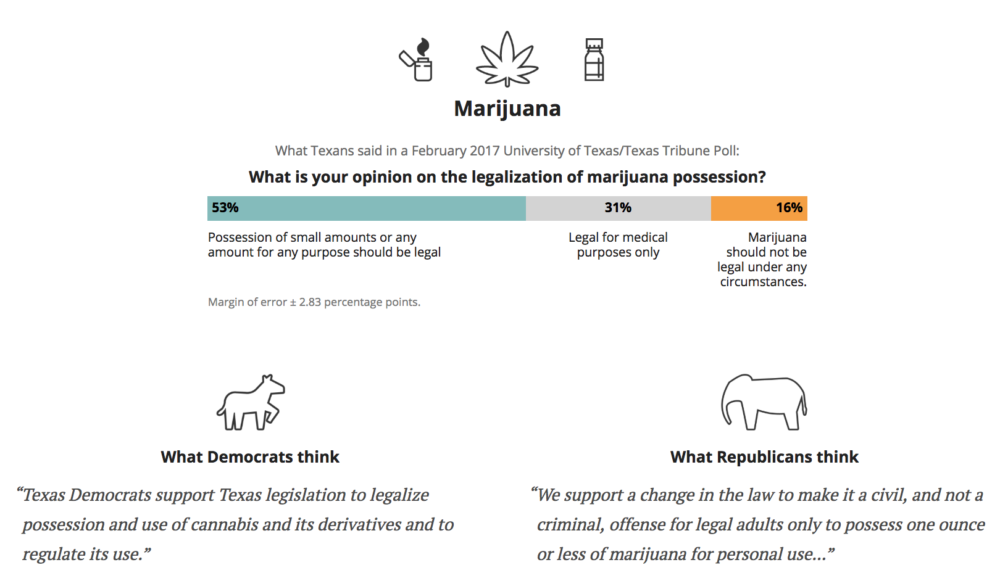
Republicans have inched the platform away from a firm anti-marijuana stance in recent years. This year, the party passed a plank that supports decriminalizing possession of small amounts of marijuana. Democrats have advocated for marijuana decriminalization since 2012, but this year, they tweaked platform language to call for full legalization.
Democrats have long opposed subsidizing private school education but added language to this year's platform to argue that such subsidies would particularly affect access to special education services for Texas students with disabilities. The GOP modified its platform, which has long supported school choice, to assert that "no child should be forced to attend a failing school," and to "reject the intrusion of government in private, parochial, or homeschools."
Neither party's position on this issue has drastically changed in recent years. But Democrats added language to their platform this year in support of "complete adherence to the federal ‘Motor Voter' laws" which allows states to give residents the opportunity to register to vote at the same time that they apply for or renew their driver's licenses.
The Republican platform calls for the repeal of those laws. In May, the 5th U.S. Circuit Court of Appeals temporarily blocked a lower court ruling mandating Texas enact a voter registration system that would allow drivers to register to vote when they renew their driver's licenses online.

 76 °F
76 °F